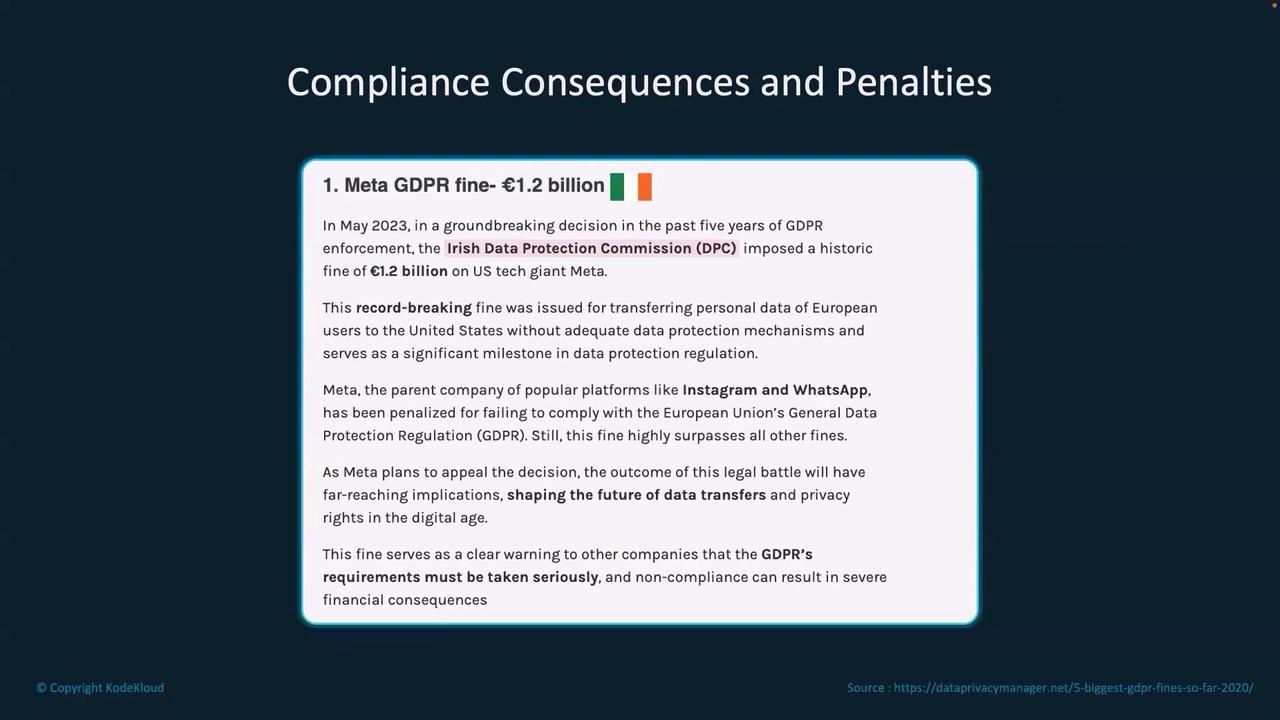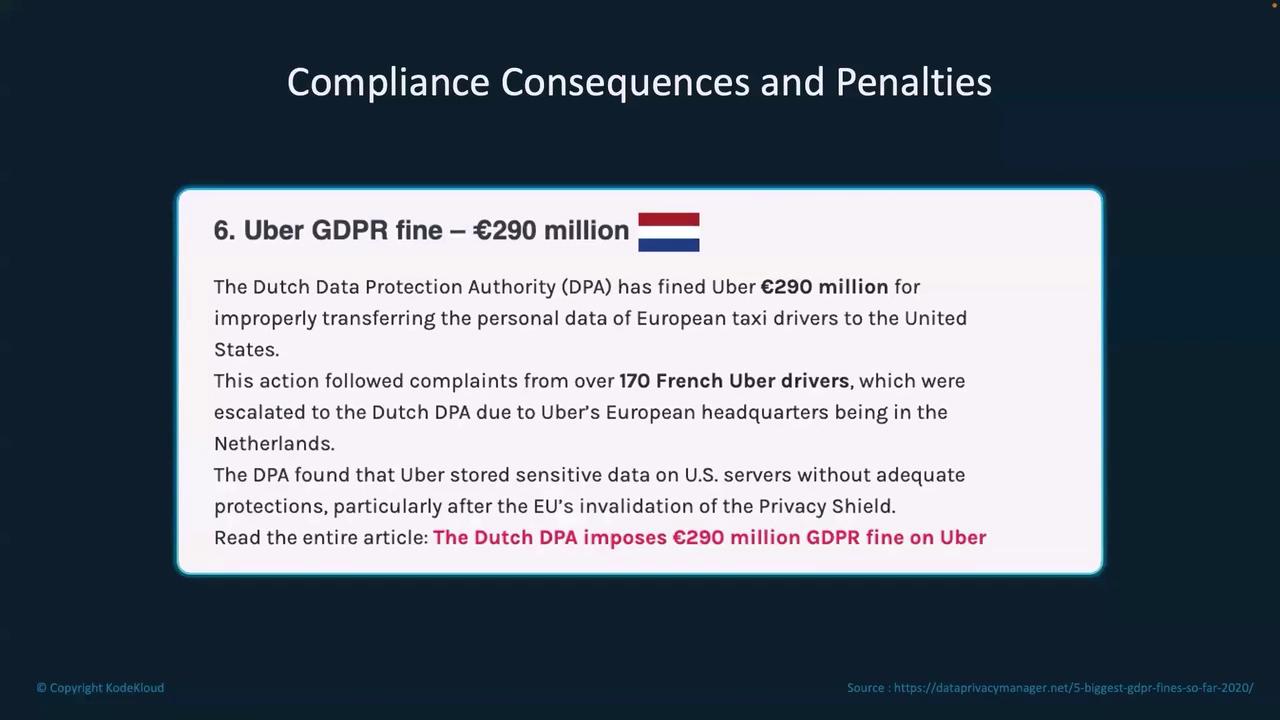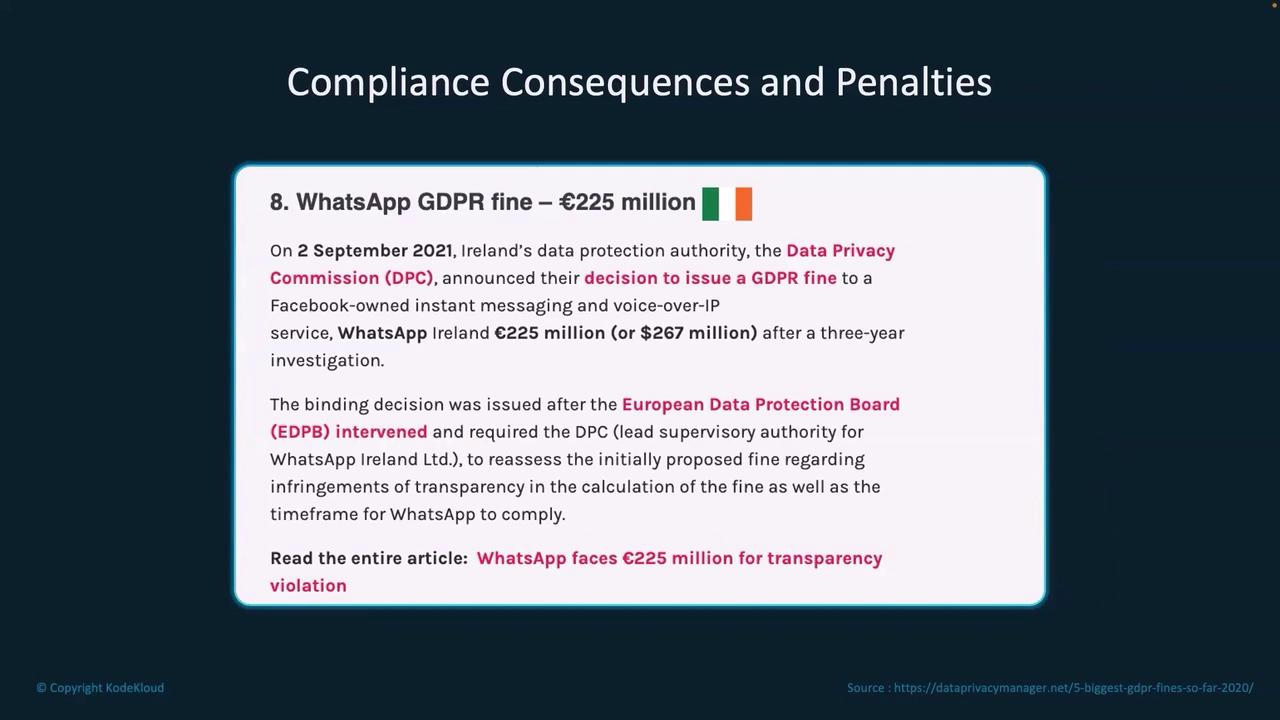Fundamentals of MLOps
Data Security and Governance
Compliance Consequences and Penalties
Welcome back. In this article, we delve into real-world examples of how non-compliance with data protection regulations, such as the GDPR, leads to significant financial penalties and regulatory scrutiny. We'll discuss three landmark cases that underline the importance of managing international data transfers and maintaining transparent data practices.
Meta and the €1.2 Billion GDPR Fine
In 2023, the Irish Data Protection Commission imposed a record-breaking €1.2 billion fine on Meta—the parent company of Instagram and WhatsApp. The fine was issued for transferring personal data of European users to the United States without adequate safeguards. This unprecedented decision highlights the critical need for robust data protection mechanisms when handling cross-border data transfers.

Organizations of all sizes should take note: non-compliance with GDPR requirements can result in severe financial penalties and lasting reputational damage. Companies must ensure that international data transfers adhere to strict compliance standards.
Uber and the €290 Million GDPR Fine
The Dutch Data Protection Authority recently fined Uber €290 million for improperly transferring personal data of European taxi drivers to the United States. This penalty followed an investigation sparked by complaints from 170 French Uber drivers. The investigation disclosed that Uber stored sensitive personal data on U.S. servers without sufficient protections—an issue compounded by the invalidation of the Privacy Shield Agreement.

Note
This case underscores the necessity for companies to continuously review their data storage practices and ensure that all international data transfers are compliant with the latest regulatory frameworks.
WhatsApp and the €225 Million Fine for Transparency Violations
In 2021, WhatsApp Ireland faced a €225 million fine imposed by the Irish Data Protection Commission following a three-year investigation. The penalty was levied over transparency issues concerning how user data was shared with other Facebook companies. The European Data Protection Board also stepped in, requiring a reassessment of the fine and establishing a clear timeline for compliance improvements.

This case serves as a reminder that clear communication about data usage and transparent data handling practices are not only ethical imperatives but legal requirements under GDPR.
Key Takeaways
| Data Protection Case | Fine Amount | Key Issue | Regulator |
|---|---|---|---|
| Meta | €1.2 billion | Inadequate safeguards for international data transfers | Irish Data Protection Commission |
| Uber | €290 million | Improper data transfer practices and storage on insufficiently protected U.S. servers | Dutch Data Protection Authority |
| €225 million | Transparency issues in sharing user data with affiliated companies | Irish Data Protection Commission |
Warning
Failure to comply with data protection regulations can result in severe penalties and lasting damage to an organization's reputation. It is crucial to implement robust data protection policies and ensure regular audits of international data handling practices.
These examples clearly illustrate that data protection regulations are more than just administrative hurdles—they are enforced policies with real financial and operational consequences. Whether you are a startup or a large organization, ensuring compliance with GDPR and other data protection laws is integral to safeguarding your business and maintaining trust with your users.
That is it for this article. We look forward to exploring more topics in our next discussion.
Watch Video
Watch video content